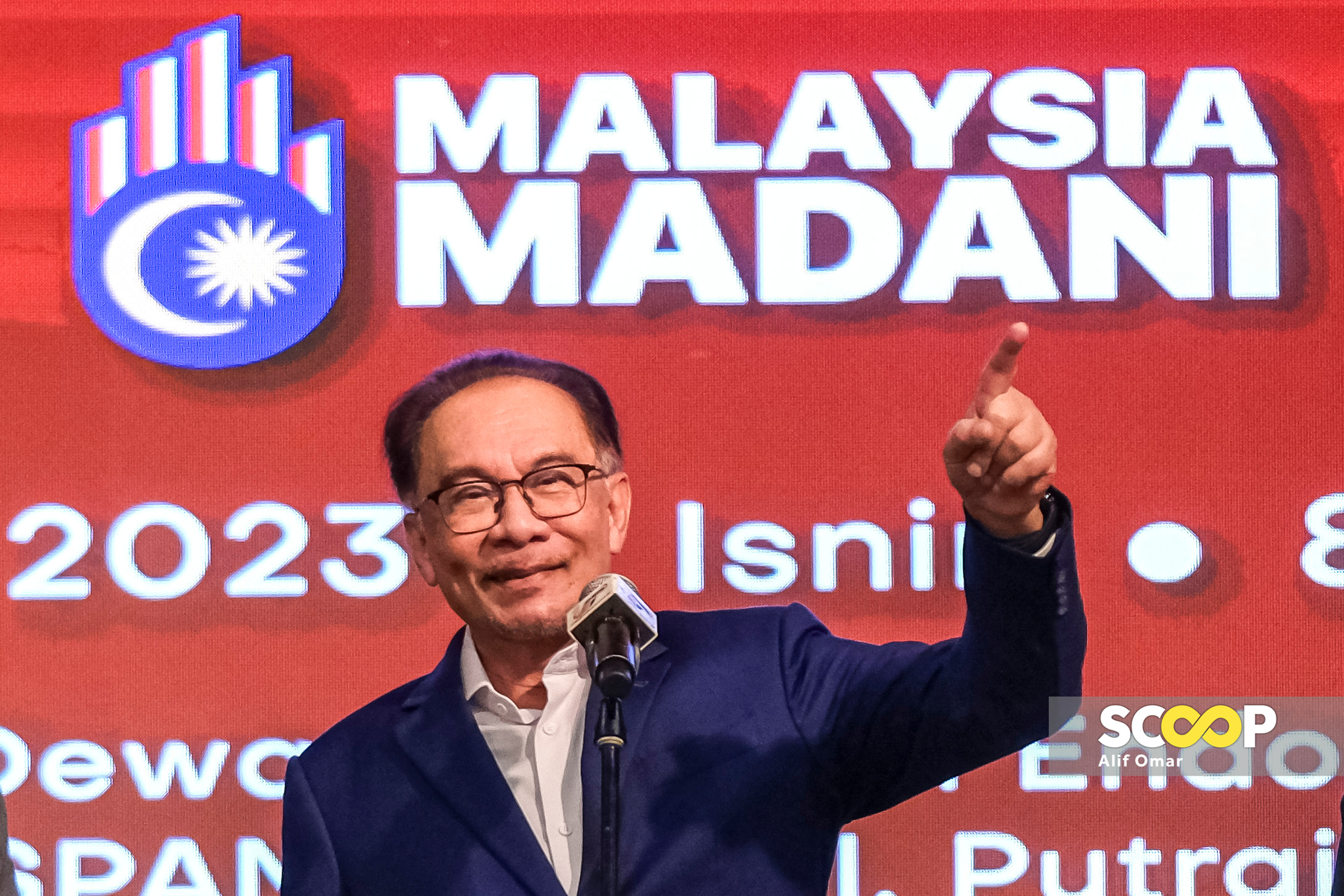A year ago, Malaysians boldly voted despite not knowing the fate of the nation in the most unpredictable general election ever.
All three coalitions had at some point been part of the federal government. Each had its merits but almost everyone in town had concluded that no coalition would have been able to form government in its own right.
True enough, there was no single coalition that won an outright majority on November 19, 2022. Fate has it that the combined number of seats from Pakatan Harapan (82) and Barisan Nasional (30) is the magical 112.
After five days of high-profile tussles, Datuk Seri Anwar Ibrahim was sworn in by the Yang di-Pertuan Agong on November 24 as Malaysia’s 10th Prime Minister.
I published a research piece with the Yusof Ishak Institute of Southeast Asian Studies (Iseas) in January 2022 entitled ‘Malaysia on the cusp of a new political order’ which I characterised the previous political orders, namely:
The era under the multi-ethnic Alliance government led by Tunku Abdul Rahman Putra Al-Haj (1957-1969);
The era of Umno-led Barisan Nasional (BN) which prioritised the rapid improvement of the livelihood of the Malay middle class (1970-1990);
The era under the slogan of Vision 2020 and Bangsa Malaysia, a more inclusive version of Malaysian nationalism (1991-2005); and
The era which saw Umno and BN turn right wing and began to decline while Pakatan Rakyat (and later PH) despite popular support was unable to secure the right to rule on its own.
Each order lasted more than a decade and was relatively stable during the intervening periods before it frayed in the end.
A successful political order in Malaysian history requires two prerequisites, ability to win votes across ethnic lines and to gain support of the Sabah and Sarawak parties and people.
In this new political order, how do we measure the achievements of Prime Minister Datuk Seri Anwar Ibrahim and the unity government, especially when both have faced many trials and tribulations over the past one year?
First, on December 19 2022, Anwar won a confidence vote in Parliament.
Second, the tussle between two groups in Umno, one that supported the unity government and the other that wanted Tan Sri Muhyiddin Yassin as Prime Minister. The Umno party election in March saw the mainstream group which supported Anwar won a landslide victory.
Third, the six-state elections saw the “peak” of Perikatan Nasional (PN). It could only offer voters the same things as it did in GE15, namely Muhyiddin to be Prime Minister and PN would form a Malay government. It also riled up racial issues to portray itself as a champion for the Malays.
After the state elections, the idea that PN could pull off another Sheraton coup was thrown out of the window. Also there is a huge reservoir of middle ground voters among the Malays and non-Malays alike who reject the dangerous politics of stoking the fire of racism.
Fourth, the unity government won the crucial by-elections of Pulai and Simpang Jeram in Johor, and Pelangai in Pahang, proving that PN’s influence is only limited to the four northern Peninsular states and constituencies with a very high proportion of Malay voters.
Fifth, during the state elections and also at the Hari Malaysia celebration in Kuching, Sarawak Premier Tan Sri Abang Johari Openg categorically stated that Gabungan Parti Sarawak would support Anwar to lead the unity government to complete the parliamentary term.
I predicted in August that there would be a possibility of Bersatu falling into oblivion while PAS excels in Perlis, Kedah, Terengganu and Kelantan, and at some point PAS would find it unnecessary to have Bersatu as an ally. And PAS is likely to see the transition of power from Tan Sri Abdul Hadi Awang to a younger leader soon.
Today most Malaysians agree that Anwar’s unity government would stay until the end of the term, and Muhyiddin’s hope of becoming Prime Minister for the second time is getting dimmer.
It is also evident that Bersatu is rapidly self-imploding, to the extent that PAS had to appoint Tun Dr Mahathir Mohamad as the advisor to the four states it runs. One wonders why Mahathir, and not Muhyiddin.
In short, after many battles, most of the stumbling blocks for the new political order have been cleared off. Anwar and the unity government fulfilled both of the criteria for a lasting political order, being able to win across ethnic lines as well as to secure support from Sabah and Sarawak parties.
The challenge now is whether the unity government is able to launch a second economic take-off to serve as the cornerstone for this new political order to rebuild Malaysia. – November 19, 2023
Liew Chin Tong is Deputy Minister of Investment, Trade and Industry, as well as DAP deputy secretary-general

